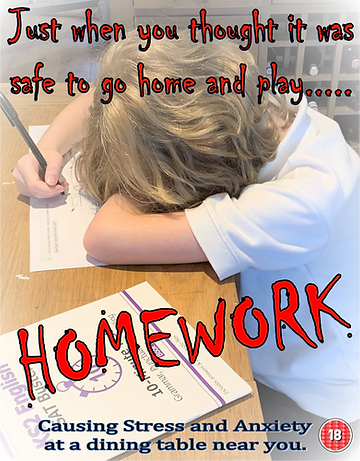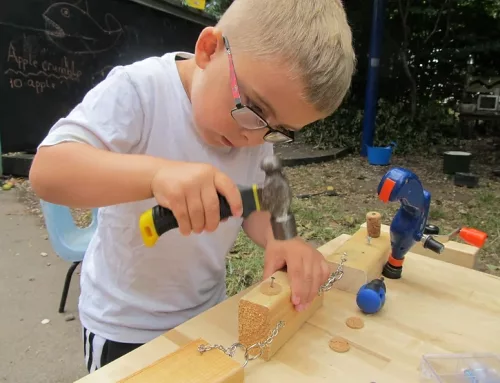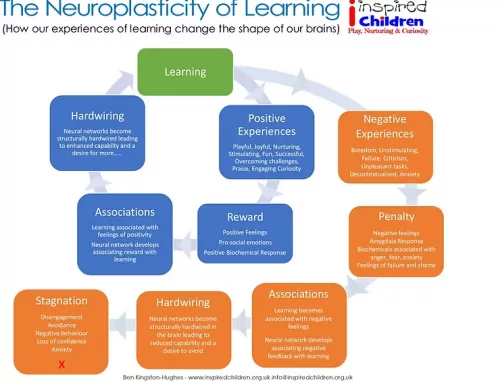
Many parents are telling us that their children’s homework usually ends in tears. (often for the children too!) They are telling us that they feel bad for making their children do something that is clearly upsetting and feel guilty if they don’t make their children do the work. The prevailing view of parents we have discussed this subject with is that homework in primary school is an unpleasant experience and can lead to genuine distress for their children. Why do we persist in homework then? Evidence as to the effectiveness of homework is wildly contradictory and very difficult to measure as so many other factors come into play. For every study that definitively supports homework there is another that says it has only limited effect. There is some suggestion that homework becomes more effective as children get older and yet we seem to be giving it to younger and younger children.
More of the same?
The expectation that a child who has been at school all day should then be forced to sit still and complete even more academic work seems to be counter-intuitive. Current neuroscience tells us that brain development is experiential and activity dependant. It takes a broad range of experiences and environments to reach our full brain development potential. We also know that modern school environments, where learning is often passive and children are sedentary, are not always conducive to healthy brain growth. Added to this is the fact that play is a profoundly important neurological developmental process yet is massively declining in our society. So when the child gets home from school, even if they have been fully engaged in formal learning throughout the school day, the expectation that they should miss out on playing through completing even more academic work seems counter-productive and even potentially neurologically damaging. Now let’s assume a child has not engaged fully with academic learning in a classroom, which is increasingly probable considering that school anxiety and mental health problems for children are increasing. The stress and anxiety inherent in some children’s experiences of classroom learning mean that they are in desperate need of emotional resetting and some time away from the anxiety of school. For this increasing group of children the pressure of additional work at home can be extremely distressing and will often end in tears. More importantly the negative experience of homework could potentially cause emotional damage to the child.
A huge disparity of experience
There is also a huge disparity in the amount of time it takes to do homework. A fully engaged child who finds classroom work to be easily completed may take 20 minutes to do the homework and then move happily on to other things. A child who struggles with classroom work will take significantly longer to complete the same piece of work and consequently experience a far greater level of anxiety. Children who have any form of learning difficulties are highly likely to spend longer on the same piece of homework. I have extensive experience of working with children with ADHD and have ADHD myself so can easily relate to the almost physical pain of being forced to spend time on anything that my brain is not engaged with. Especially when I am already mentally exhausted from a whole school day of doing similar potentially unstimulating tasks. The anxiety levels of the child must also be factored in. A child who finds the homework straightforward, rewarding and even enjoyable will complete the homework in short order with the whole experience being a positive one. Once a child becomes anxious though, neuroscience tells us that cognitive processing is increasingly impaired. Essentially the more anxious, angry or frustrated a child becomes the less able they are to answer the very questions that are making them feel anxious in the first place. This downward spiral has a negative bio-chemical effect on the child further impairing their ability to comprehend and effectively complete the task and could potentially have a long-term effect on their mental health. It is also very likely to increase their chances of school anxiety.
Even if we do believe that homework creates a nominal improvement in children’s academic achievement, and the research is far from clear that this is the case, surely we should also measure the emotional cost to the child?
Is home work actually damaging?
So is Homework actually dangerous for children’s emotional well-being? Ok it might sound sensationalist but for those parents, like me, who have witnessed the genuine trauma that some children experience through homework, then the whole practice seems to be completely barbaric. For any other practice that caused the same degree of anxiety there would be no hesitation about categorising that practice as an abusive one and we should be asking serious questions about why this practice is allowed to continue in schools across the UK. Even teachers are telling us they don’t agree with homework but are continuing the practice because it is school policy. Is it worth reminding schools that safeguarding children from emotional abuse is also school policy?
For children that enjoy homework, children that don’t mind homework or even children who occasionally grumble and then get on with it, clearly the practice is not damaging. If, however, you have ever sat for 2 hours with a sobbing dyslexic child trying to do badly worded homework clearly downloaded from a generic website, then you will have seen just how upsetting the experience of homework can be. Parents of non neurotypical children, children with ADHD, dyslexia or any other learning difficulties or mental health issues are repeatedly telling us how damaging the experience of homework is for their children. For these children, the emotional cost of homework is too high when set against some nebulous potential gain in academic achievement.
What do we want for our children?
Schools need to ask the question, “what do we want for our children?” If the answer is the highest academic achievement possible, then homework would seem to be a possible (but not conclusively proven) way to achieve this for a small percentage of children. If the answer is to have the best possible chance at life, to be resilient, emotionally secure and to actually want to learn and develop throughout their life then the potential cost of homework could well be too high for some children.
Let our children be children – let our children play!
Note – Inspired Children works with extremely vulnerable children who have often been through severe child abuse. We would never belittle the experiences of these children by suggesting that homework is child abuse in the same way. And yet if children are regularly sobbing, genuinely traumatised or repeatedly anxious because of homework then it simply cannot be right and is certainly not healthy. Any practice that causes this negative impact on children needs to be challenged.





Leave A Comment